Interview with Bert -- Hydroponic/Aquaponic at [p3] in Freiburg
Last week, we started to plant on our small Hydroponic System! We are excited for this new project, where our men can learn about our environment, current challenges in our world, what we can do about it in our every day and why Hydroponic can be answer not just for us, but around the world.
Bert has also joined our team until the end of the year 2019 to help us jump-start this project, which is financed by badenova!
Here is an Interview I had with Bert about two weeks ago, where he explains what he is looking forward to the most, the challenges and the importance of this project.
Happy reading,
Cynthia
Cynthia: Hey Bert, tell us a bit first about you, what you are doing at [p3] and for how long?
Bert: My name is Bert, I am married and I am a father since April which is great! My wife and I, we work for YWAM in Hawaii and because of some reasons, like Visa issues, we have to be here in Germany for some time and I had to see what I could do.
I know David Rösch since years and I have known about [p3]-Werkstatt as well. I heard they were working with hydro- and aquaponic systems and I was wondering if I could join in this project for a few months, because I have already worked with aquaponics in Hawaii with Youth with a Mission (YWAM).
So my job is basically to plan a hydroponic system and also start the building process. I will not be here until it is completely finished.
Cynthia: Do you know when it is planned to be finished?
Bert: I think February/March 2020
Cynthia: What are you looking forward the most on your time here?
Bert: First of all, I think I am looking forward to building relationships with [p3] and also to invest in [p3] because I really admire the people and the motives of this work— to help people with immigration backgrounds to get a perspective here in Germany.
So yes, to build relationships, invest in [p3] and to learn! I have not been working for a long time in aquaponic so there is still a lot for me to learn. I usually work with people in this field who already have experience and now I am the one responsible but that is a good challenge!
Cynthia: What do you think some of the challenges will be?
Bert: One of the biggest challenges is that everyone here is inexperienced in this field of technology. So many things we do, we have to try and see. But that’s the way we can discover how it works. We always move in this place of uncertainty or risk—time wise, money wise — and that’s challenging. Right now we want to run one cycle with the hydroponic system we have here, and at the same time we are heading towards winter. We are not sure if we will lose our crops and that is risky.
Cynthia: Can you tell us about the Cooperation with OM?
Bert: Yes, that’s another really cool thing! [p3] partners with OM, Operation Mobilization, another Missionary Organization. They bring the expertise! They have lots of experience with aquaponic/hydroponic systems and to be able to build relationships with them is a blessing.We’ll see what the future holds for this partnership! They are the people we can always ask if we have questions. They are not building with us here, but they are our go to if we have any questions.
Cynthia: Why: Hydroponik/Aquaponic?
Bert: Yeah, first of all aquaponic is a form of hydroponic;-) It is one answer to fight decreasing human health. I think it is not a mystery that our diet is not the best.- Caused by stressed we don’t spend time to prepare our own food. Our health is suffering under our life conditions and hydroponic can be an answer against this trend. We also regain knowledge and an idea about what we are eating. If people run an aquaponic or hydroponic system, they will think twice before they add anything that affects the crops and therefore know exactly the benefits and risks of their food.
Cynthia: How would you explain for our readers what hydroponic/aquaponic is?
Bert: We can grow leafy and fruiting vegetables, such as salads, tomatoes and zucchinis without soil and with way less water than in normal agriculture. We don’t need soil because we give the nutrition into the water, which we then give the plants.
The ”hydro” in “hydroponic” means water and ”ponics” means work. So the water is working for us, we do not need the soil. The water holds the nutrients and is delivered to the roots of the plants, which basically sit in the water.That way we can place the exact amount of nutrients into the water. As a result the plants are not getting sick as fast, and they also grow faster, because they get exactly what they need.
The two main advantages are: up to 90% less water and no soil. That makes it nice when you place this system on your balcony or indoors, because there is neither the need to handle dirt nor to water your plants daily.
Aquaponics is a special form of hydroponics. It mixes hydroponics with aquaculture. The nutrients are delivered through the excrements and metabolism products of fish, which are rich in ammonia. This ammonia is converted by bacteria into nitrite and then nitrate. The nitrate is uptaken by the plants. The water then goes back to the fish
It is also a way to take responsibility for our resources. We are not wasting stuff, we can grow very efficiently and hopefully we are able to find a way here in Freiburg and in the western world, to provide a solution to a healthier lifestyle.
The Bible says in Genesis 3 verse 19, “by the sweat of your face you will eat bread”. After Adam ate from the fruit he wasn’t supposed to eat from, God shares that one of the consequences is that men will have to sweat and earn their own food. I believe, there is also a blessing here. God knew what human beings needed. Yes, sweating is not easy, but with hydroponic, we do not need to ditch holes in the ground, but we do work for our own food! We can value our food that much more, when we ourselves have invested our time and energy in our own food. This is good and healthy and I see it as a blessing.
Cynthia: when we ourselves can directly grow our own food that we are eating
Bert: yeah
Cynthia: How can Aquaponic or Hydroponic change or impact our city and ultimately our world?
Bert: In places with low amount of water, like in developing countries, you can provide a way to grow food. Especially with aquaponics, you grow fish and plants, so you have a protein source and vegetables, which is really nice! And especially in these countries, where people lack nutrition. Often they are also sick and do not have work. They lose hope in their lives and also their dignity. And I think this can give them hope, life and dignity in a certain way.
In countries like Germany and in our western world, it can give us a sense of nature. Nature provides life for us; we can have good food in contrast to fast and highly processed foods. Healthy food benefits our bodies, including our brains, our emotions, our emotional capacity and mental strength and our creativity is increasing! In our jobs we have a chance to be more creative and productive. So yes, it offers a chance and a solution to grow things in the midst of our busy lives.
Another verse in the Bible, Romans 12.2, says, “Do not be conformed to the this world.” Another translation would read, “Do not copy the world”. I interpret this verse in the context of hydroponic as an encouragement to not just stick to the norm. We do not have to go to the grocery store or a fast-food chain restaurant because everyone is doing it.
The second part of this verse tells us that when we do God’s will, we will also see that God’s will is good, acceptable and perfect. And this is what I have experienced so far through hydroponic and I am excited to see how hydroponic/aquaponic continues to impact our world for the better.
Cynthia: Great. Thank you, Bert! We are really thankful to have you with us and thank you for your time.
Bert: You are welcome.
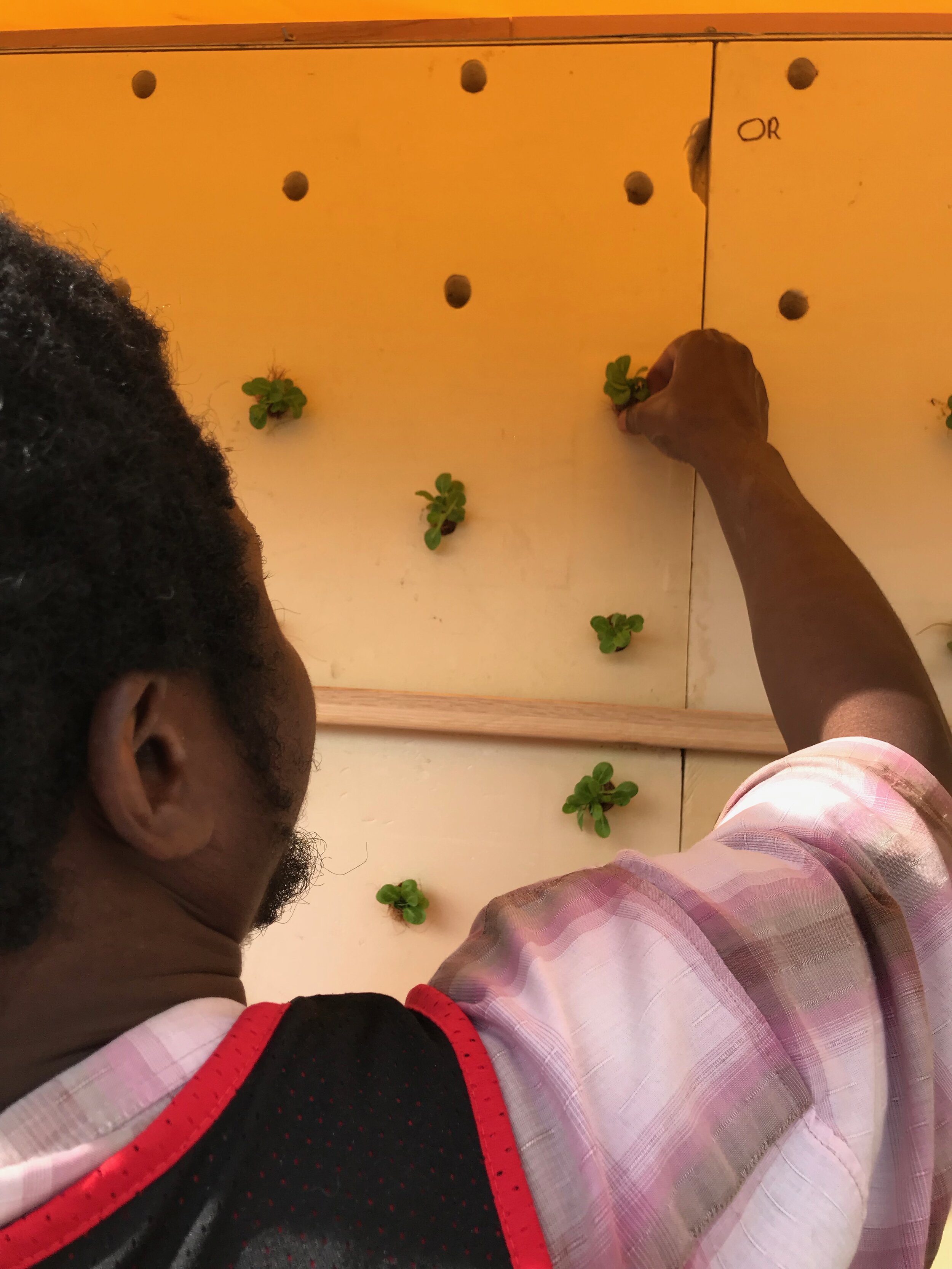

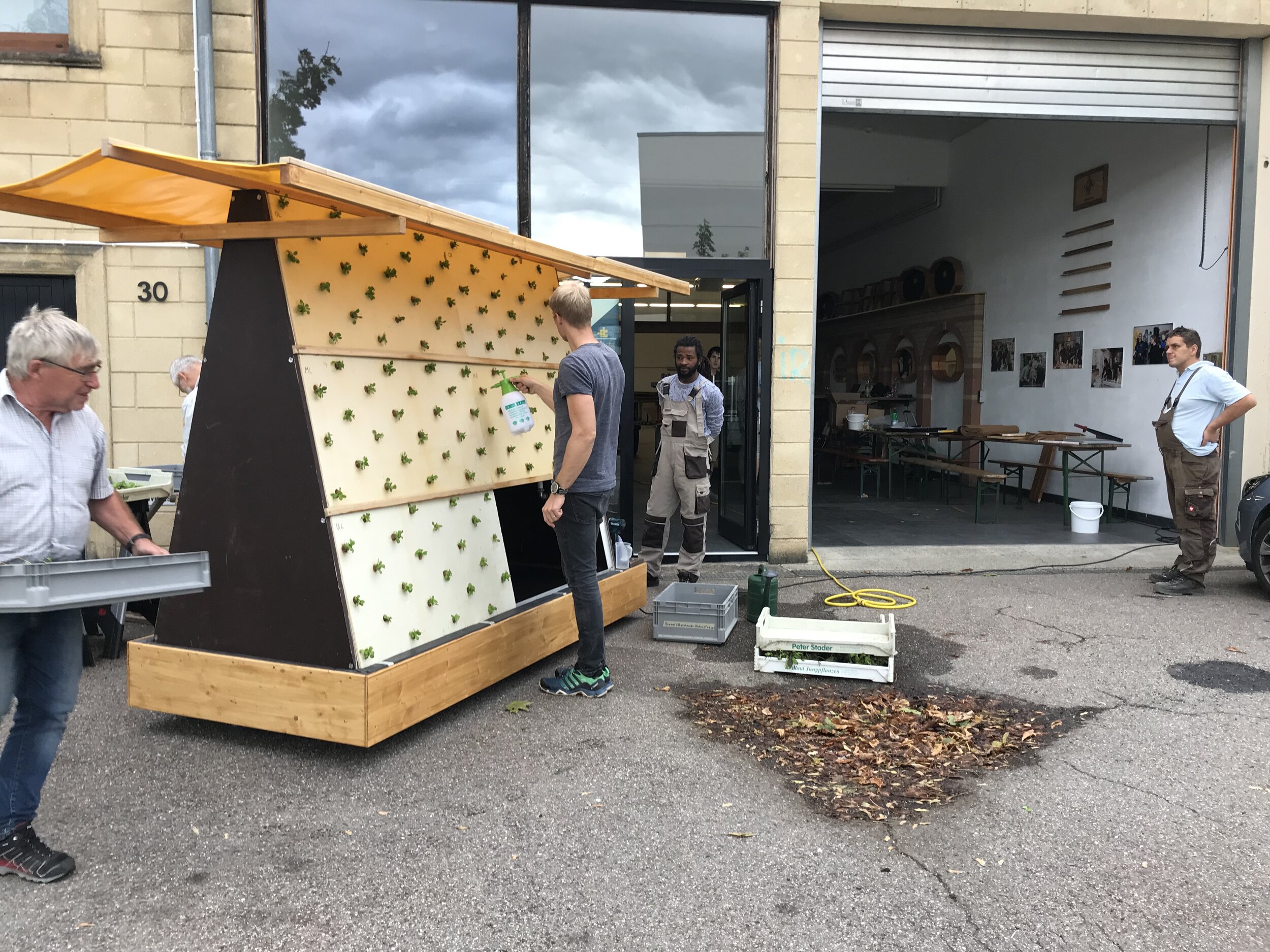
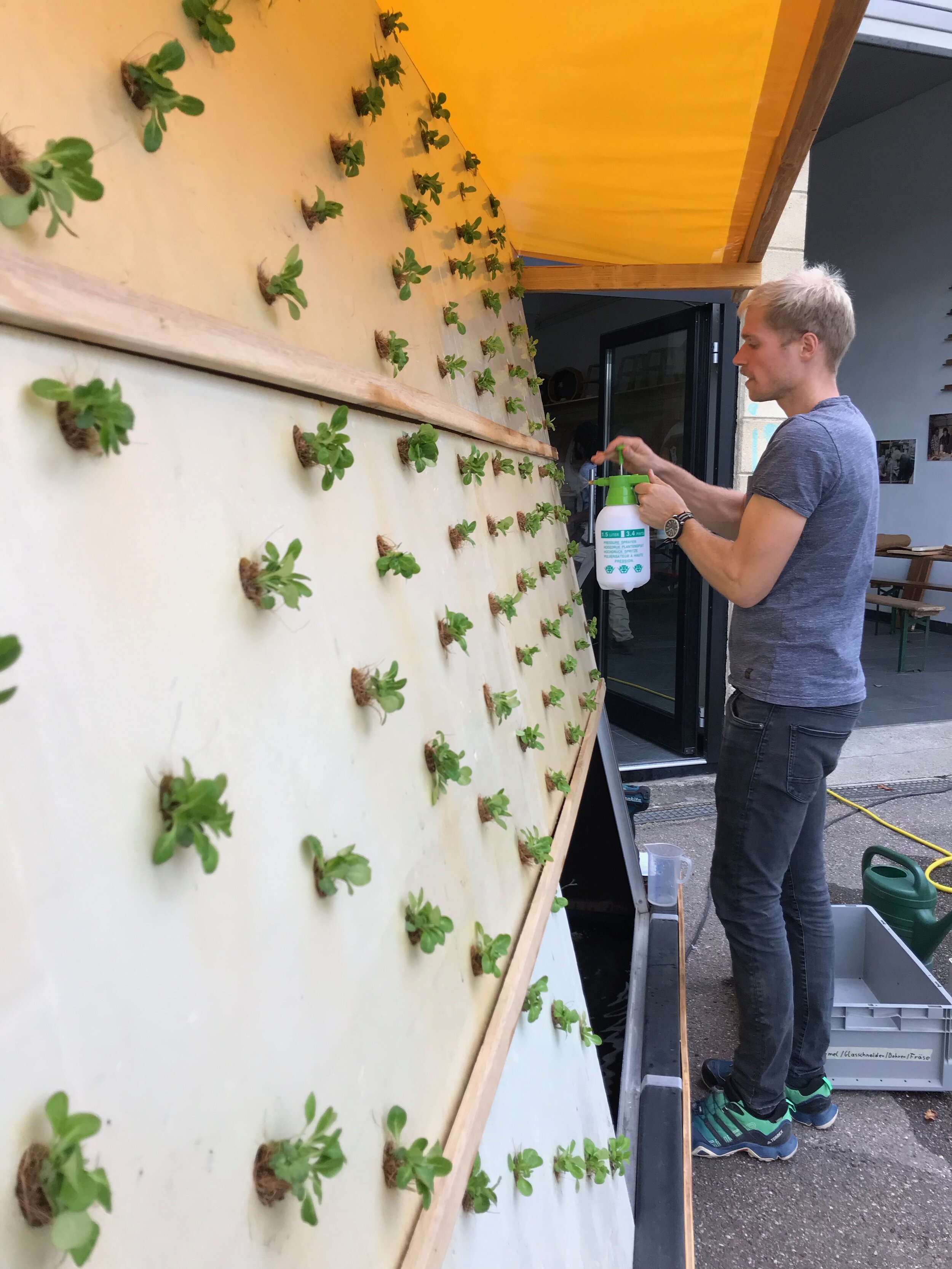
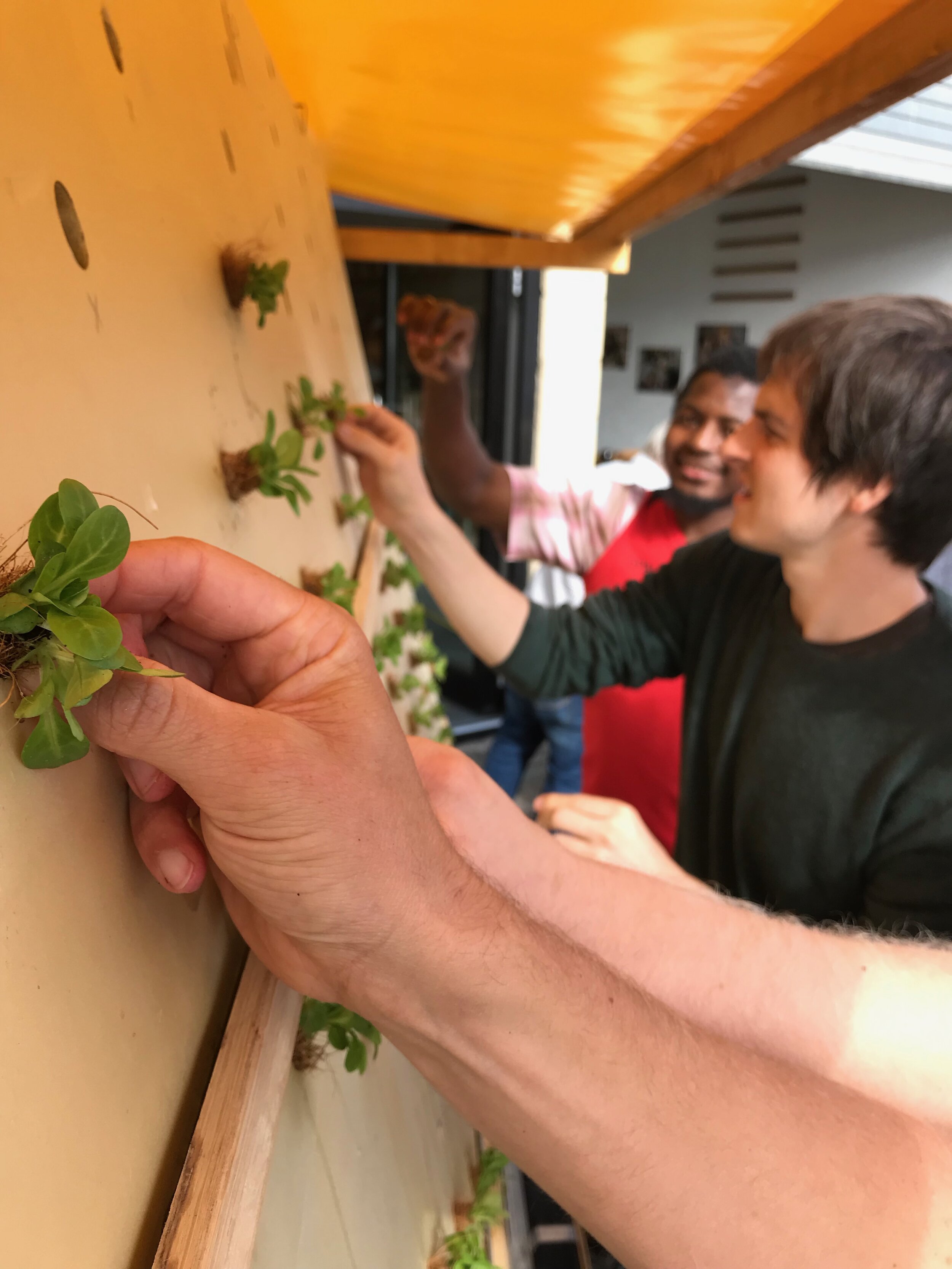
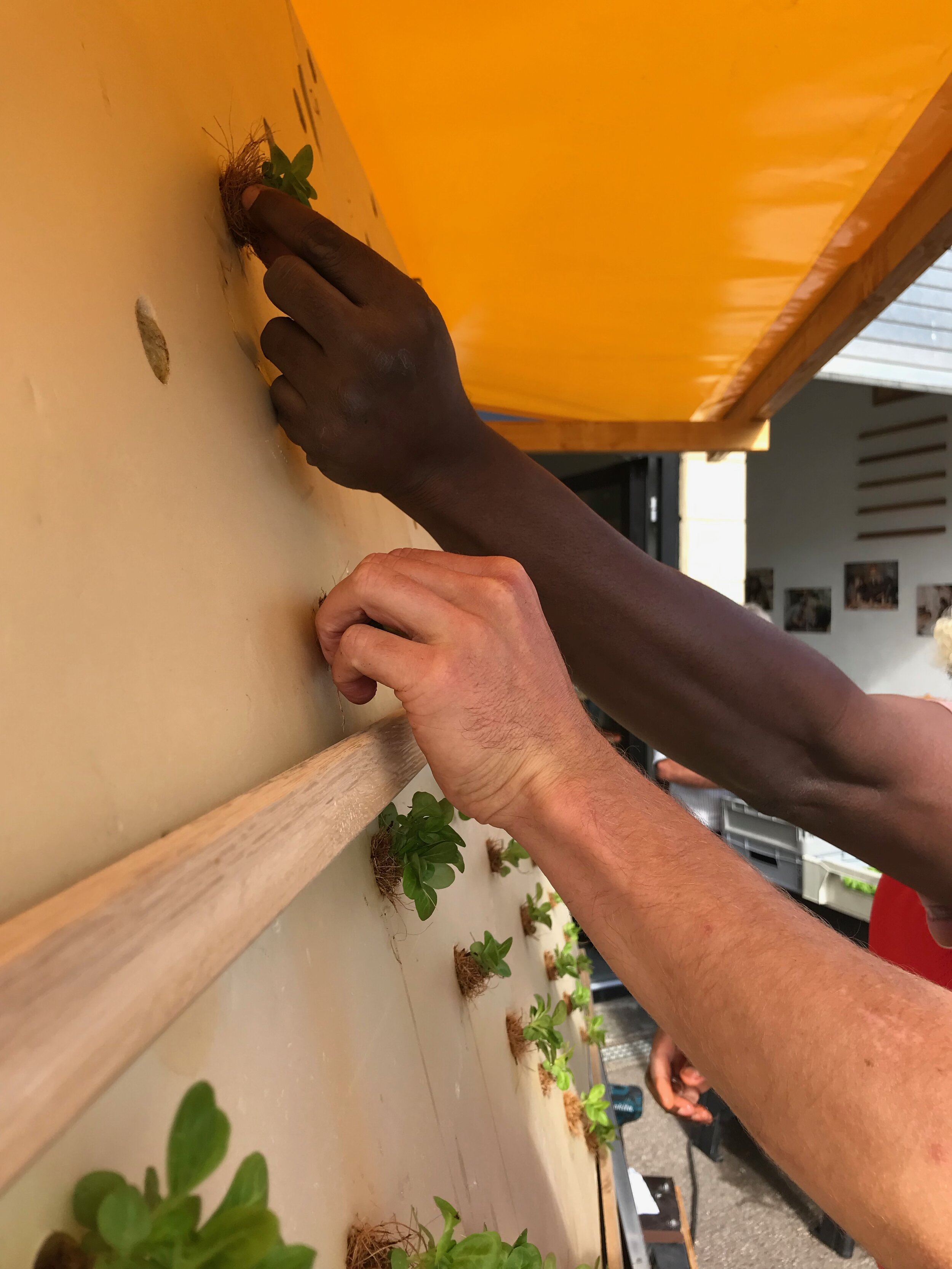
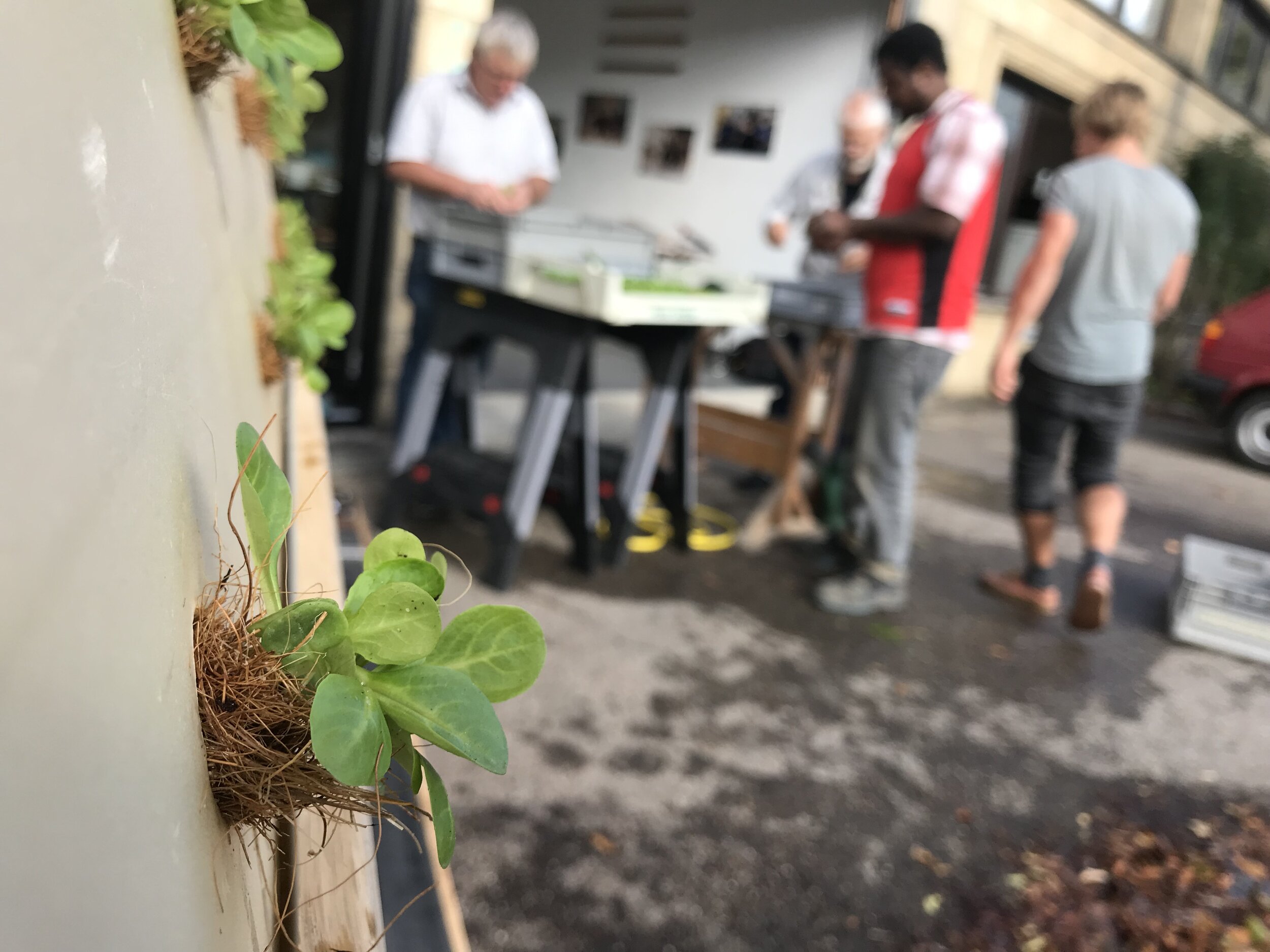
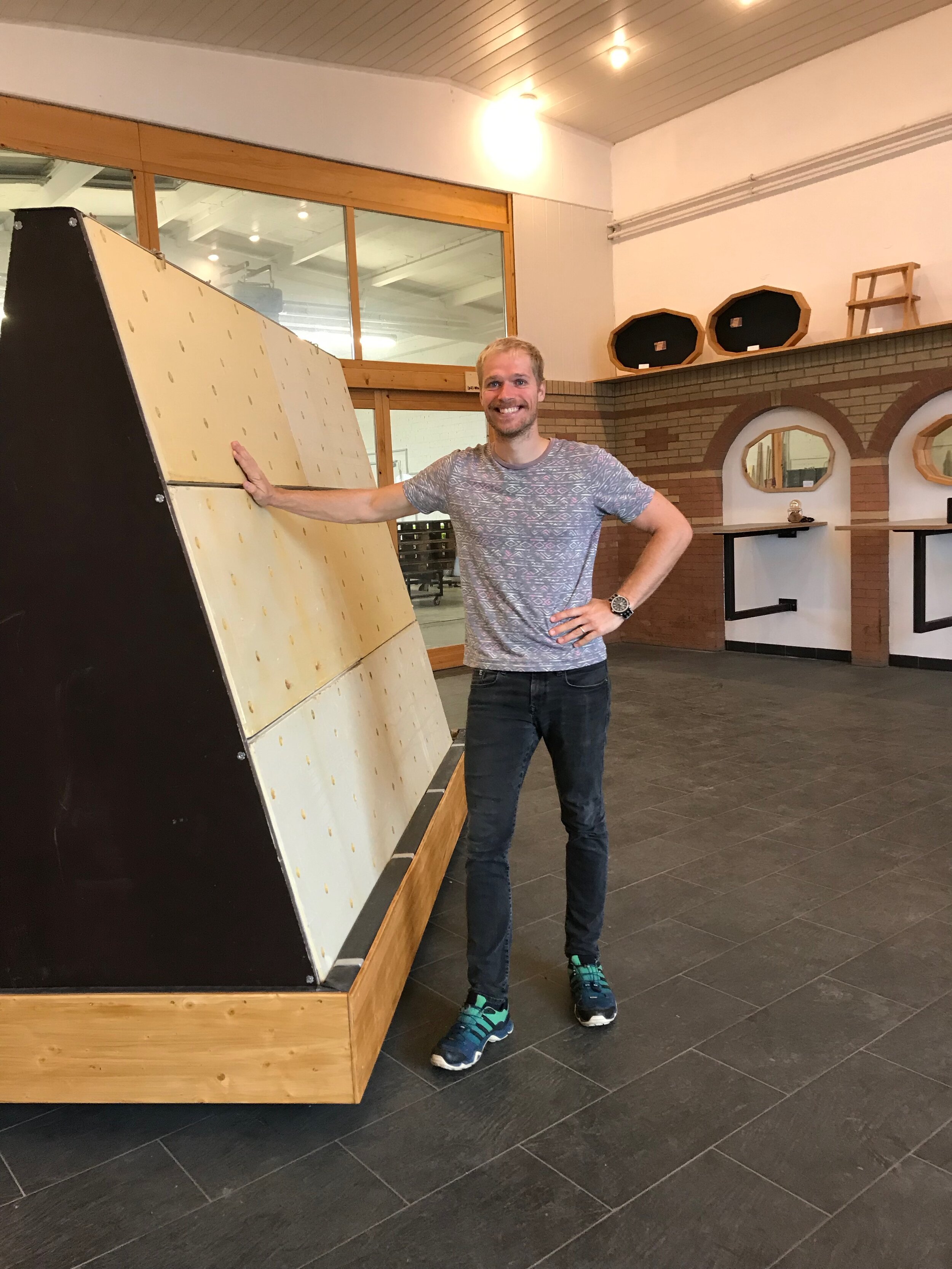

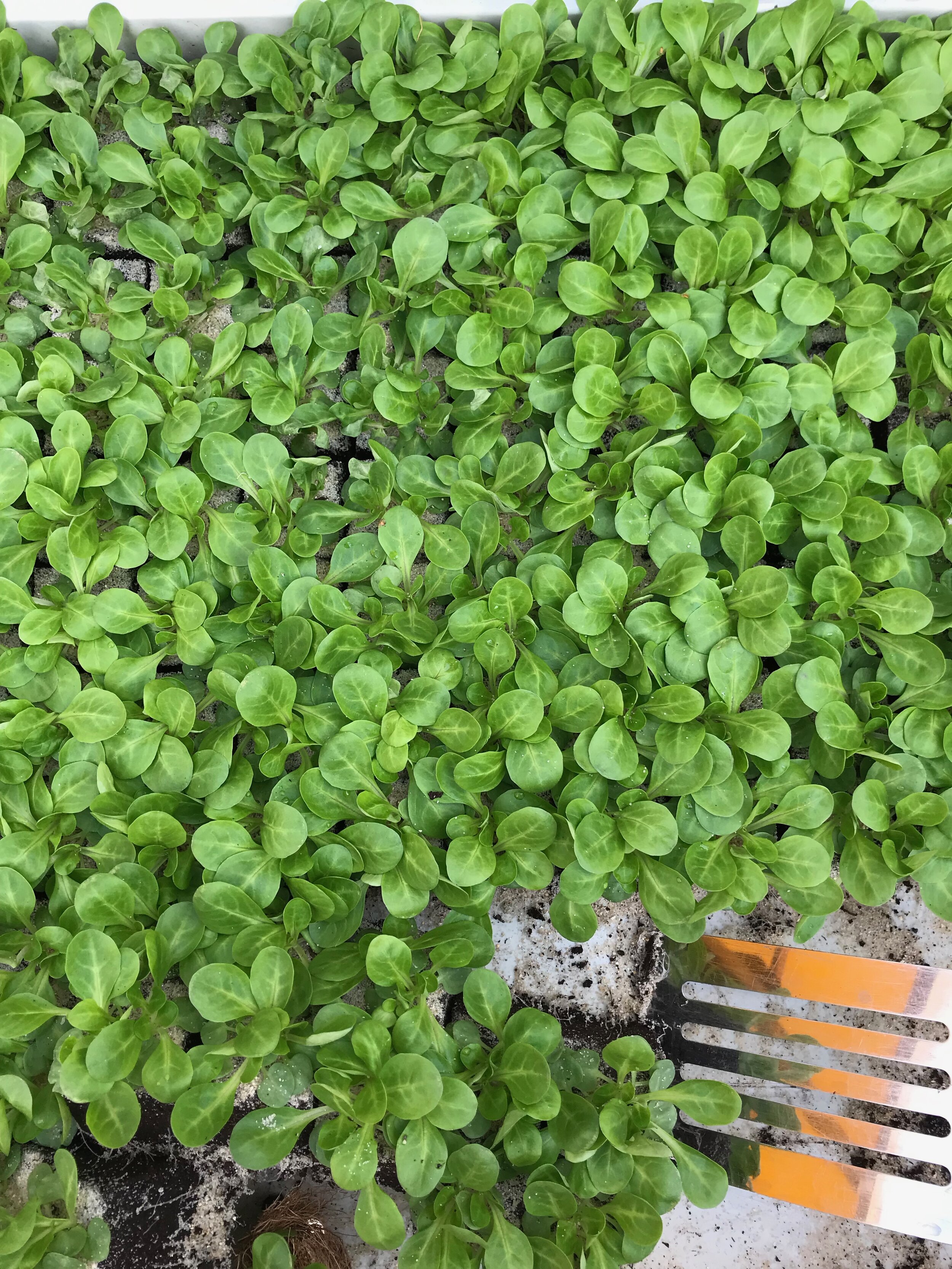
![[p3] Schreinerei, Ausbildungsvorbereitung & Mobile Küche](http://images.squarespace-cdn.com/content/v1/5b4da568f8370ac3a573a1c3/1615278839104-ZNAI0VTM808VCCJZ1RL1/P3_CLAIM_schwarz_logowebsite21_300.png)